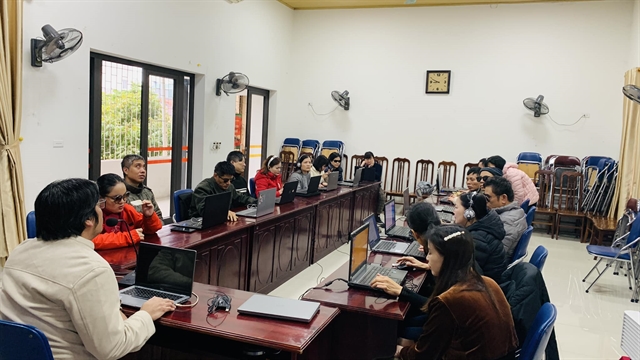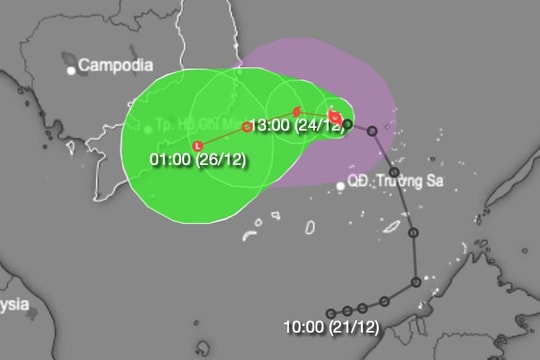Blind people train in vocational courses to master their lives and improve their prospects
One place trusted by those with impaired vision for help in beginning their careers, is the Vocational Education Centre (VEC) within the Hà Nội Blind Association.
 |
| An office information technology class at the Vocational Education Centre as part of the Hà Nội Blind Association. — Photo courtesy of the centre |
HÀ NỘI — Many blind people in Hà Nội are trying to overcome difficulties to master their lives and integrate into society by studying and working.
One place that they trust to find the vocational training they need to start a career is the Vocational Education Centre (VEC), working under the Hà Nội Blind Association.
Success
For many years, a health care centre for the blind, Ánh Dương (Sunshine), located at No 18, Alley 20, Long Biên 2 Street, Ngọc Lâm Ward in Long Biên District has been known and trusted by many people.
Each month the centre earns tens of millions of đồng (VNĐ10 million equals US$390), creating jobs for the blind workers who earn a salary of around VNĐ3-4 million ($118-158) per person per month.
It’s a dream income for disabled workers, but the centre owner Lương Thị Hải Yến, who is also blind, still wished to have a better income and so in 2019, Yến started working as an online seller.
Being eager to learn, she participated in two sales skills training courses organised by the VEC.
Since then, her work took off and her income increased to about VNĐ6-8 million ($236-315) per month.
Also studying at the VEC and using the knowledge he gained to search for jobs, Nguyễn Đăng Đức became owner of the Tâm Đức health care centre at No 205 Tô Hiệu Street in Hà Đông District.
Currently, Đức’s centre has a stable number of customers, providing work and regular income for him and more than ten other blind people.
Thanks to his high professional skills and resilience, Đức was invited to be a lecturer for massage training at the VEC.
In addition to Yến and Đức, thousands of blind people have been equipped with vocational skills through different courses at the VEC and after those programmes, more than 80 per cent of the trainees have secured jobs and a regular income.
Deputy Director of the VEC Nguyễn Trung Thái said that in addition to vocational training, the VEC encourages students to integrate into the wider society and other industries.
Last year alone, the VEC opened 17 vocational training classes, attracting nearly 400 students who have gone on to work in a variety of employment, from working in IT to running on-line sales.
However, said Thái, vocational training for those workers with impaired vision, faced many difficulties and challenges.
The biggest one is that current funding for the work depends on sponsors, while finding sponsor resources is not easy.
Proactively overcoming obstacles, the VEC has called for cooperation between domestic, international organisations and individuals to support those students with disabilities.
The VEC also assigns officials and teachers to districts to support them open vocational training classes locally, so students do not have to travel far and can save costs.
Another solution is assigning staff from districts to receive advanced coaching at the VEC, then return to pass on what they have learned at the grassroots level.
A typical example is the Deputy Chairman of the Thanh Trì District Blind Association Lê Tự Lập, who graduated from an advanced technology course at the start of this year. He said: “I will soon become a teacher of a basic vocational information technology class for the blind in Thanh Trì District."
Deputy Director Thái said that creating connections between workers and increasing job opportunities for them was the VEC’s main goal and would give the blind community more confidence in life. — VNS
























